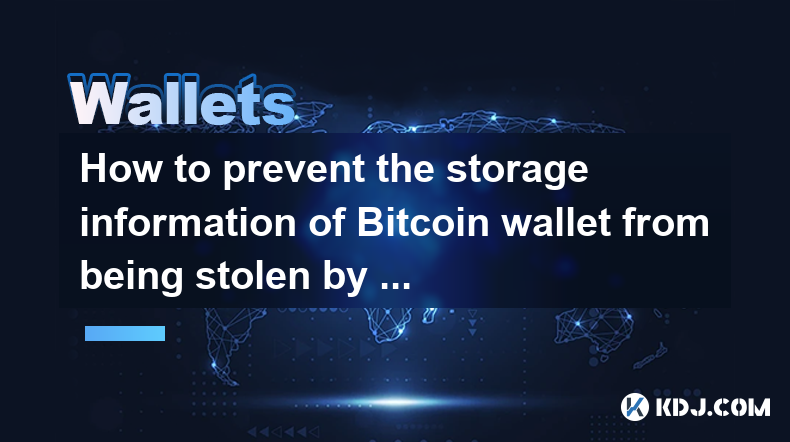-
 Bitcoin
Bitcoin $107,965.5977
-1.49% -
 Ethereum
Ethereum $2,537.2130
-1.84% -
 Tether USDt
Tether USDt $1.0000
-0.01% -
 XRP
XRP $2.2608
-0.71% -
 BNB
BNB $659.3980
-0.36% -
 Solana
Solana $148.7394
-2.41% -
 USDC
USDC $1.0000
0.01% -
 TRON
TRON $0.2873
-0.36% -
 Dogecoin
Dogecoin $0.1679
-4.64% -
 Cardano
Cardano $0.5763
-2.71% -
 Hyperliquid
Hyperliquid $37.4767
-6.61% -
 Bitcoin Cash
Bitcoin Cash $496.1888
-0.42% -
 Sui
Sui $2.8545
-3.01% -
 Chainlink
Chainlink $13.2532
-2.61% -
 UNUS SED LEO
UNUS SED LEO $9.0537
0.09% -
 Stellar
Stellar $0.2467
-2.27% -
 Avalanche
Avalanche $17.8240
-3.64% -
 Shiba Inu
Shiba Inu $0.0...01160
-2.60% -
 Toncoin
Toncoin $2.7443
-3.31% -
 Hedera
Hedera $0.1560
-2.71% -
 Litecoin
Litecoin $85.9596
-2.27% -
 Monero
Monero $315.7623
-2.23% -
 Dai
Dai $1.0000
-0.01% -
 Polkadot
Polkadot $3.3513
-2.20% -
 Ethena USDe
Ethena USDe $1.0001
0.03% -
 Bitget Token
Bitget Token $4.2992
-3.24% -
 Uniswap
Uniswap $7.3735
-1.54% -
 Aave
Aave $278.5274
-3.41% -
 Pepe
Pepe $0.0...09849
-3.52% -
 Pi
Pi $0.4560
-3.35%
How to prevent the storage information of Bitcoin wallet from being stolen by others?
2025/03/24 19:07

How to Prevent the Storage Information of Your Bitcoin Wallet from Being Stolen by Others?
Protecting your Bitcoin wallet information is paramount. Losing access to your wallet means losing your Bitcoin. This article explores various methods to safeguard your private keys and prevent theft. Remember, vigilance and a multi-layered approach are crucial for optimal security.
Understanding the Threat:
The primary threat to your Bitcoin isn't physical theft of a device, but rather the compromise of your private keys. These keys, essentially passwords to your Bitcoin, are what grant access to your funds. If someone gains access to them, they can transfer your Bitcoin to their own wallet. This can happen through phishing scams, malware, or vulnerabilities in poorly designed wallets.
Securing Your Private Keys:
- Hardware Wallets: These physical devices store your private keys offline, offering the highest level of security. They are generally considered the safest option for storing significant amounts of Bitcoin. Choose reputable brands with a strong track record.
- Software Wallets: These are applications installed on your computer or mobile device. They offer convenience but are more vulnerable to hacking if your device is compromised. Use strong passwords and keep your software updated. Consider using a multi-signature wallet for added security.
- Paper Wallets: These involve printing your public and private keys on paper. While offering offline security, they are vulnerable to physical theft or damage. Store them securely and consider making multiple backups.
Preventing Phishing and Malware:
- Verify Website URLs: Before entering your wallet information, double-check the URL to ensure it's legitimate. Phishing websites mimic legitimate platforms to steal your credentials.
- Update Software: Keep your operating system, antivirus software, and wallet software up-to-date to patch security vulnerabilities.
- Avoid Suspicious Links: Don't click on links from unknown sources or emails. These links could lead to malicious websites or download malware onto your device.
- Use Strong Passwords: Employ complex, unique passwords for each of your wallets and online accounts. Consider using a password manager to generate and securely store them.
- Two-Factor Authentication (2FA): Enable 2FA wherever possible. This adds an extra layer of security, requiring a code from your phone or another device in addition to your password.
Safeguarding Your Device:
- Strong Device Passwords: Use strong passwords or biometric authentication (fingerprint, facial recognition) to protect your computer and mobile device.
- Regular Backups: Regularly back up your wallet data. Store these backups securely and in multiple locations.
- Antivirus and Firewall: Install and maintain a reputable antivirus and firewall on your devices to protect against malware.
- Avoid Public Wi-Fi: Avoid accessing your Bitcoin wallet on public Wi-Fi networks, as these are vulnerable to interception.
- Regular Security Audits: Periodically review your security practices to identify and address any weaknesses. Consider using a security expert to conduct a thorough audit.
Choosing the Right Wallet:
The best wallet for you depends on your technical skills, security needs, and the amount of Bitcoin you're storing. Research different wallet types carefully before making a decision. Consider factors such as reputation, security features, and ease of use.
Staying Informed:
The cryptocurrency landscape is constantly evolving. Stay informed about the latest security threats and best practices by following reputable news sources and security blogs. Regularly check for updates to your wallet software and operating system.
Common Questions and Answers:
Q: What happens if my hardware wallet is lost or damaged?
A: Most reputable hardware wallets offer recovery methods using seed phrases. However, losing your seed phrase is equivalent to losing your Bitcoin, so store it securely and separately from your device.
Q: Are software wallets safe?
A: Software wallets can be safe if used responsibly, but they are generally considered less secure than hardware wallets due to their vulnerability to malware and hacking. Use strong passwords, keep your software updated, and use reputable wallets.
Q: What is a seed phrase, and why is it so important?
A: A seed phrase (also known as a recovery phrase) is a list of words that acts as a backup for your wallet. It allows you to recover your Bitcoin if you lose access to your wallet. Keep it absolutely secret and secure. Never share it with anyone.
Q: Can I use the same password for multiple wallets?
A: No, absolutely not. Using the same password for multiple wallets significantly increases your risk if one wallet is compromised. Use unique, strong passwords for each wallet.
Q: What should I do if I suspect my wallet has been compromised?
A: Immediately change your passwords, contact your wallet provider (if applicable), and monitor your Bitcoin balance closely. Consider contacting law enforcement if you believe you've been a victim of a crime.
Q: Is it safe to store Bitcoin on an exchange?
A: Exchanges offer convenience but are not generally recommended for long-term storage. Exchanges are targets for hackers, and you don't have direct control over your private keys. Only keep on exchanges what you need for immediate trading purposes.
부인 성명:info@kdj.com
제공된 정보는 거래 조언이 아닙니다. kdj.com은 이 기사에 제공된 정보를 기반으로 이루어진 투자에 대해 어떠한 책임도 지지 않습니다. 암호화폐는 변동성이 매우 높으므로 철저한 조사 후 신중하게 투자하는 것이 좋습니다!
본 웹사이트에 사용된 내용이 귀하의 저작권을 침해한다고 판단되는 경우, 즉시 당사(info@kdj.com)로 연락주시면 즉시 삭제하도록 하겠습니다.
- Bitcoin Solaris Market Launch: A New Dawn or Just Another Altcoin?
- 2025-07-08 20:30:12
- Bitcoin, Memecoin Mania, and the All-Time High Hunt: What's Next?
- 2025-07-08 20:30:12
- Byrq Coin: Scam or Savior? A Deep Dive Review
- 2025-07-08 20:50:12
- Shiba Inu's Burn Rate Bonanza: Can Crypto Burns Ignite a Price Rally?
- 2025-07-08 20:50:12
- XLM Price Prediction: Is Stellar Ready for a Breakout?
- 2025-07-08 19:10:13
- Memecoin Mania: V2EX, Pump.fun, and the Wild West of Crypto
- 2025-07-08 19:50:12
관련 지식

MetaMask not connecting to websites
2025-07-08 21:35:57
<h3>Common Reasons Why MetaMask Fails to Connect</h3><p>When MetaMask not connecting to websites, several potential causes can be id...

How to find my MetaMask seed phrase?
2025-07-08 21:21:27
<h3>Understanding the MetaMask Seed Phrase</h3><p>The MetaMask seed phrase, also known as a recovery phrase, is a sequence of 12 or ...

How to cancel a pending transaction in Phantom wallet?
2025-07-03 19:21:45
<h3>Understanding Pending Transactions in Phantom Wallet</h3><p>A pending transaction in the Phantom wallet occurs when a user initi...

How to see the estimated value of my tokens in Phantom wallet?
2025-07-04 00:21:49
<h3>What is Phantom Wallet?</h3><p>Phantom wallet is one of the most popular cryptocurrency wallets designed for the Solana blockcha...

How to lock my Phantom wallet extension?
2025-07-03 11:14:34
<h3>What Is the Phantom Wallet and Why Lock It?</h3><p>The Phantom wallet is a popular non-custodial cryptocurrency wallet designed ...

Does Phantom wallet offer two-factor authentication (2FA)?
2025-07-03 09:00:19
<h3>Understanding Phantom Wallet and Its Security Features</h3><p>Phantom wallet is a widely used non-custodial cryptocurrency walle...

MetaMask not connecting to websites
2025-07-08 21:35:57
<h3>Common Reasons Why MetaMask Fails to Connect</h3><p>When MetaMask not connecting to websites, several potential causes can be id...

How to find my MetaMask seed phrase?
2025-07-08 21:21:27
<h3>Understanding the MetaMask Seed Phrase</h3><p>The MetaMask seed phrase, also known as a recovery phrase, is a sequence of 12 or ...

How to cancel a pending transaction in Phantom wallet?
2025-07-03 19:21:45
<h3>Understanding Pending Transactions in Phantom Wallet</h3><p>A pending transaction in the Phantom wallet occurs when a user initi...

How to see the estimated value of my tokens in Phantom wallet?
2025-07-04 00:21:49
<h3>What is Phantom Wallet?</h3><p>Phantom wallet is one of the most popular cryptocurrency wallets designed for the Solana blockcha...

How to lock my Phantom wallet extension?
2025-07-03 11:14:34
<h3>What Is the Phantom Wallet and Why Lock It?</h3><p>The Phantom wallet is a popular non-custodial cryptocurrency wallet designed ...

Does Phantom wallet offer two-factor authentication (2FA)?
2025-07-03 09:00:19
<h3>Understanding Phantom Wallet and Its Security Features</h3><p>Phantom wallet is a widely used non-custodial cryptocurrency walle...
모든 기사 보기

























































































